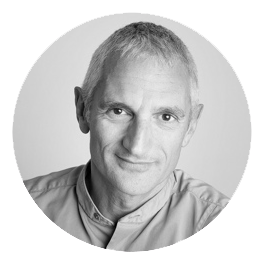‘Physical health is mental health’ – why we need to get the balance right
The Tokyo 2020 Olympic Games might be over. But that won’t stop one particular moment from going down in history.
When Simone Biles – the four-time Olympic gold medallist gymnast – withdrew from the team final in a bid to ‘focus on her wellbeing’, followed by the individual all-round, vault, bars and floor finals, it made headline news across the world.
Some accused the American gymnast of using ill mental health as an excuse. While others praised the 24-year-old for putting her total wellbeing first.
Striking the balance between physical and mental health
At the time, Simone told journalists: “I have to focus on my mental health.
“I just think mental health is more prevalent in sports right now… we have to protect our minds and our bodies and not just go out and do what the world wants us to do.”
This is something Osteopath Robin Kiashek agrees with.
Robin, who has 25 years’ experience in helping his patients achieve physical and emotional wellbeing, is a big believer in taking a holistic approach when it comes to your health.
“Simone wasn’t the first athlete to take a step away to protect her mental health and overall wellbeing – and I’m sure she won’t be the last,” Robin says.
But whether you agree with Simone’s decision or not, striking the right balance between your physical and mental health is a necessity.
“This is because you are more prone to physical injury if you aren’t in the right mental state,” Robin adds. “And once you are injured, rehabilitation can be a long road to recovery. “You only have to watch tennis champion Andy Murray’s touching documentary to witness this. In the documentary we see Andy’s struggle with chronic hip pain, which resulted in many attempts to ‘fix’ the problem, including an unsuccessful surgery.”
R is for rehab and rest
We’ve spoken before about how the ‘Next Day Delivery’ culture of expecting results at the click of a button is becoming increasingly prevalent. And our approach to recovery from injury is no different.
But many patients who have a sports-related injury feel that by ‘keeping calm’ and ‘carrying on’, it can help combat their disruption and control stress.
“When in fact overdoing things can often be a factor in causing the initial injury,” Robin says. “Which is why it’s so important listen to your body.
R is also for rest
However, this can be easier said than done. As carrying on as normal is something we are all guilty of doing – Robin included.
Robin recently tore his medial knee meniscus doing excessive breaststroke, which he acknowledges was his own fault.
He said: “As soon as my local swimming pool reopened after the long lockdown, I quite literally dived straight back in to doing the 60 length sessions I was doing prior to this.
Which is why Robin is encouraging everyone to ease back into exercise safely. And be intuitive of your mind and body.
Perhaps when exercising, the words to keep in mind come from the 32-time Olympic and World Championship medallist, Simone, who said: “Physical health is mental health.” Or as the ancient Greeks once said: “Mens sana in corpore sano”, which means: “Healthy in mind, healthy in body”.
Robin Kiashek is an Osteopath with 25 years’ experience in the industry. If you are struggling with any condition affecting your body and struggling to find a solution, don’t hesitate to reach out.





Leave a Reply
Want to join the discussion?Feel free to contribute!